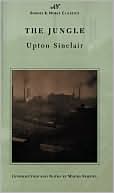Sea Glass
"It is a house on the beach. Honora doesn't mind renting - despite its age and all its flaws, the old house is the perfect place for a new marriage. She and Sexton throw themselves into fixing it up, just as they throw themselves into their new life together. Each morning, Honora collects sea glass washed up on the shore, each piece carrying a different story in its muted hues." "Sexton finds a way to buy the house, but his timing is perfectly wrong. The economy takes a sickening plunge, and...
Search in google:
From the international bestselling author comes a moving new novel about marriage, memory, and troubled times.Book MagazineShreve's latest novel concerns a hastily married young couple who set themselves up in a house on the New Hampshire coast on the eve of the 1929 stock market crash. Honora is virtuous, self-reliant, hardworking, thoroughly good; her husband, Sexton, is precisely none of these things. The relationship goes sour before there's been much of a honeymoon, and the story plays out at a deft pace, accumulating momentum one slight, sure-handed chapter at a time. Before long, Honora will befriend a bored Boston socialite named Vivian, feel a dangerous affection for a local mill worker named McDermott and find herself immersed in the planning of a strike. She'll also develop a habit of collecting sea glass—the random bits of broken glassware that wash up on the shore and serve, throughout the book, to inspire some heavy-handed metaphors. Shreve is at her best when describing the Depression years and depicting the history of Honora's ramshackle, vulnerable house. (The house is familiar Shreve territory, as it made an appearance in her earlier bestsellers, The Pilot's Wife and Fortune's Rocks.) Unfortunately, the characters themselves are not convincing or compelling; they are either all good or all bad, yet they tend to sound somewhat the same. —Beth Kephart
\ From Barnes & NobleThe Barnes & Noble Review\ Few writers are able to straddle the genres of popular and literary fiction. Although marriage, adversity, and resilience are conventional themes in both, much popular fiction relies on standardized plot twists or gimmicks to attract its readership. Novelists like Anita Shreve, however, don't require either of those contrivances to form a large and loyal following. Again and again, her touching stories defy classification and offer an incredible richness of emotional complexity.\ \ \ In the textile-manufacturing region of New Hampshire in 1929, newlyweds Honora and Sexton Beecher wrestle with all the wonders and challenges that young couples have always faced. They've just purchased a house near the ocean that needs a lot of work, but the couple is dedicated to making it a home. When the economy fails and a single unscrupulous act perpetrated by Sexton is revealed, more than love will be required to keep the marriage from collapsing under the weight of this betrayal. Sexton -- formerly a traveling salesman -- is forced to take a job at the local mill alongside other men, women, and children whose very survival is being threatened by the harsh burden of their daily toil. Repeated pay cuts and inhumane conditions propel the workers closer to a potentially violent clash with management and union breakers. Alliances are formed, honor is challenged, and character flaws become fatal as the tinderbox explodes, leaving old bonds broken and new ones bolstered.\ Momentum builds steadily in this beautifully developed story, unfettered by needless machinations. Shreve deftly weaves the lives of a diverse collection of characters into a tapestry that is rich with the complete range of human emotion and lush with tactile nuance. (Ann Kashickey)\ \ \ \ \ \ From The CriticsShreve's latest novel concerns a hastily married young couple who set themselves up in a house on the New Hampshire coast on the eve of the 1929 stock market crash. Honora is virtuous, self-reliant, hardworking, thoroughly good; her husband, Sexton, is precisely none of these things. The relationship goes sour before there's been much of a honeymoon, and the story plays out at a deft pace, accumulating momentum one slight, sure-handed chapter at a time. Before long, Honora will befriend a bored Boston socialite named Vivian, feel a dangerous affection for a local mill worker named McDermott and find herself immersed in the planning of a strike. She'll also develop a habit of collecting sea glass—the random bits of broken glassware that wash up on the shore and serve, throughout the book, to inspire some heavy-handed metaphors. Shreve is at her best when describing the Depression years and depicting the history of Honora's ramshackle, vulnerable house. (The house is familiar Shreve territory, as it made an appearance in her earlier bestsellers, The Pilot's Wife and Fortune's Rocks.) Unfortunately, the characters themselves are not convincing or compelling; they are either all good or all bad, yet they tend to sound somewhat the same. \ —Beth Kephart \ \ \ \ \ Publishers WeeklyIn addition to spinning one of her most absorbing narratives, Shreve here rewards readers with the third volume in a trilogy set in the large house on the New Hampshire coast that figured in The Pilot's Wife and Fortune's Rocks. This time the inhabitants are a newly married couple, Sexton and Honora Beecher, both of humble origins, who rent the now derelict house. In a burst of overconfidence, slick typewriter salesman Sexton lies about his finances and arranges a loan to buy the property. When the 1929 stock market crash occurs soon afterward, Sexton loses his job and finds menial work in the nearby mills. There, he joins a group of desperate mill hands who have endured draconian working conditions for years, and now, facing extortionate production quotas and reduced pay, want to form a union. The lives of the Beechers become entwined with the strikers, particularly a principled 20-year-old loom fixer named McDermott and Francis, the 11-year-old fatherless boy he takes under his wing. A fifth major character is spoiled, dissolute socialite Vivian Burton, who is transformed by her friendship with Honora. As Honora becomes aware that Sexton is untrustworthy, she is drawn to McDermott, who tries to hide his love for her. The plot moves forward via kaleidoscopic vignettes from each character's point of view, building emotional tension until the violent, rather melodramatic climax when the mill owners' minions confront the strikers. Shreve is skilled at interpolating historical background, and her descriptions of the different social strata the millworkers, the lower-middle-class Sextons, the idle rich enhance a touching story about loyalty and betrayal, responsibility and dishonor. This is one of Shreve's best, likely to win her a wider audience. 6-city author tour. (Apr. 9) Forecast: Expectations of brisk sales, indicated by the one-day laydown, will likely be achieved. Readers should find timely resonance in the setting of 1920s economic turbulence. Copyright 2001 Cahners Business Information.\ \ \ \ \ KLIATTThe author claims, rightly so, that old houses contain many interesting stories about their inhabitants. Shreve writes about the same house here that serves as a background for her novels The Pilot's Wife and Fortune's Rocks. The house, itself, does not play a big role in this tale, but nonetheless it is a character in its own way. Honora, McDermott, Vivian, Sexton, Alphonse and Alice are the main players, with each chapter concentrating on one of them—short chapters with crisp dialogue. The story begins in 1929, an eventful year with the stock market crashing in October. Honora and Sexton are barely in their 20s, and after a brief courtship they are married. He's a salesman on the road but usually takes her with him. They enjoy a comfortable life and buy a house on the beach, where Honora begins collecting the glass that washes up on the sand with each smashing wave. The reader quickly becomes emerged in the idyllic setting and the passion of the characters, and enthralled with the hardships of the mill workers. The author conveys her story with just the right touches of drama. KLIATT Codes: SA—Recommended for senior high school students, advanced students, and adults. 2002, Little, Brown, Back Bay, 376p., \ — Sherri Forgash Ginsberg\ \ \ \ \ Library JournalNewlyweds Sexton and Honora Beecher have plenty of dreams, but they didn't plan on the stock market crash of 1929. Copyright 2001 Cahners Business Information.\ \ \ \ \ Kirkus ReviewsIn Shreve's ninth novel, a bitter strike racks the New Hampshire coastal community that also provided the setting for Fortune's Rocks (1999). Newlyweds Honora and Sexton Beecher move there in June 1929. Twenty-year-old Honora barely knows her husband; Sexton loves his wife but quickly proves just as shifty as you'd expect a traveling salesman to be. He cuts a few corners to get them a mortgage just days before the stock market crashes, loses his job, and is forced to go to work at one of the local textile mills that have been slashing wages and speeding up production for years before the Depression began. Shreve cogently contrasts the Beechers' fearful, middle-class scrimping with the more desperate situations of mill workers like Francis, an 11-year-old who works the bobbins, and McDermott, at 20 already nearly deaf from the looms' noise. On the other end of the social spectrum is wealthy, hard-drinking, promiscuous Vivian Burton, whose friendship with Honora draws her into the strike that erupts after yet another pay cut. Falling in with labor activists gives Vivian a new perspective on life: "My sort," she says to McDermott, "seem, well, despicable, really"-though that doesn't prevent her from rewriting a communist strike leader's cliche-ridden leaflet in one of the novel's few humorous scenes. Honora and Vivian gain purpose and moral stature over the narrative's 15-month course, but the men don't fare so well. Sexton's stupid (but convincingly motivated) recklessness provokes a violent climax that puts an end to any hope for the burgeoning tenderness between Honora and McDermott, while Francis sees the two people he most loves brutally murdered. The mood here is dark, but Shreve's fans will take some comfort in her typically elegant, lucid prose, evocative of the natural world and subtly probing of character. Even the abrupt entrance of death, so annoying in The Last Time They Met (2001), here seems plausible and appropriate. A sterling effort from an intelligent and entertaining popular novelist.\ \








